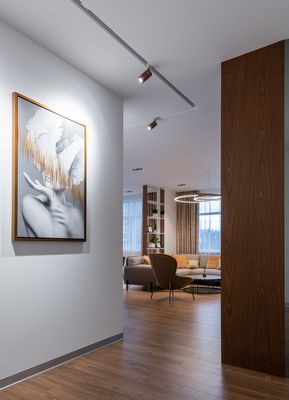
Australia is a popular place for Brits to emigrate; whilst far from home, the country boasts a fantastic climate, a healthy, outdoor lifestyle and an opportunity to build a new life in an English-speaking country. Despite the long flight, buying a holiday home in Australia is sometimes a good investment as it can be rented out to holidaymakers year-round.
Buying property in Australia as a British citizen
There is a certain amount of red tape to get through, and it will help with your budget planning if you understand the procedure you need to follow to buy a property in Australia.
Once you’ve found the right place and had an offer accepted; you will need to pay a 10% holding deposit immediately. This means that you need to make sure you have the financing in place early in the process and may want to set up an international payments account before you start looking so that you can secure the property you want.
If you aren’t an Australian citizen, or haven’t emigrated to become a permanent resident in Australia, you will need to gain permission from the Foreign Investment Review Board (FIRB) before you can purchase a property. You should get an answer within 40 days in most circumstances and although you can exchange contracts prior to approval, it would be wise to ensure the contract is conditional on receipt of that approval to ensure you are not in breach of contract and liable for any financial penalties.
If you buy a new-build property or a rural home, you may not need permission from FIRB, but the best approach is to seek advice from a solicitor on whether this is required.
If you are planning to buy a house after becoming an Australian citizen, however, read our in-depth guide on emigrating to Australia.
Restrictions on property purchases
Unless you are an Australian citizen or married to one, there are some restrictions to buying a property in Australia. Some of the rules have been developed in order to ensure that local buyers aren’t priced out of the property market. Foreign buyers are generally restricted to buying a new build, an existing property that will be redeveloped into more homes or an off-plan property. The type of visa you hold will also affect your rights regarding buying a property in Australia.
If you’re on a temporary visa, you may be tempted to buy a property while you’re working there, but you can’t simply keep the property and rent it out once you move back home. Although you aren’t prevented from buying on a temporary visa while you’re in-country, you must sell that property once you leave.
The costs of buying a property in Australia
As well as the FIRB application, which costs AUS$5,000 (and AUS$10,000 for properties valued over AUS$1m) there are a number of other costs to take into account.
These additional costs include legal fees, property inspection costs, loan and buyer’s agent fees. On top of this, you’ll need to pay both standard stamp duty and an additional stamp duty as a foreign citizen. There are also several smaller miscellaneous costs, which should all be included in your budget before you start looking for a property so that you have a clear picture of what is within your range.
Additional fees
Even if you have a local bank account and mortgage, the average minimum deposit required is 20% in Australia, so there may be a need to release some equity or repatriate funds from the UK.
If you’re retiring to Australia, you may find that your pension payment covers the deposit and possibly part or all of the purchase price. If you are planning to do this, working with a currency specialist can help you make the most of the money you’ve worked so hard for all your life. As well as guidance on the currency exchange market, you will also have access to tools to manage your risk and track or target the GBP to AUD exchange rate.
In addition, once you’ve made the move or bought the property, you can use a Regular Payment Plan to organise automatic regular payments into an Australian currency account for property maintenance and local taxes.
Open your account today and start your journey of buying a property in Australia.